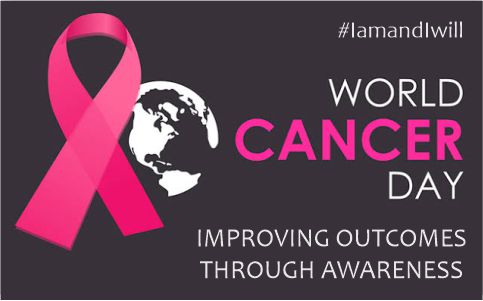CANCER – The word itself weakens the psyche and strength of many a strong people. The biggest reason for that is the traditionally fatal outcome associated with it. Historically the research on Cancer was very poor. However, after the discovery of the human genome, there have been many huge leaps in research. This combined with technological advances has improved the survival in early as well as some late cancers and also improved quality of life in some terminal cancers.
Many patients as well as Family physicians are not aware of these and as such the patient is deprived of them.
In this article we try to cover some aspect of them to help you- the patient, make an informed choice.
- Breast Cancer: We already know that in most cases of breast cancer a combination of Surgery, chemotherapy, and radiation is necessary. What is not known is the following.
- Breast conservation: The results of breast-conserving surgery(with radiation) is equal to the surgery requiring removal of the whole breast. So for young women, a breast preserving surgery can be done.
- Plastic surgery: reconstruction of the entire removed breast or a part of it(as in breast-conserving surgery) can be done. With advances in technology, many new plastic surgery techniques are available which can help in giving good form even after a mutilating surgery.
- Advances in chemotherapy and hormone therapy help in improving survival.
- The use of new devices like Scalp cooling caps can reduce hair fall after chemotherapy.
2. Head and Neck Cancers: This is the commonest cancer in men in India. The commonest cause for it is tobacco chewing, betel nut, and smoking. Controlling these helps in the prevention of this cancer. However, if cancer still develops, then few technologies can really be helpful to the patient
– Laser: The use of laser has made surgery very safe for patients with head and neck cancers. For cancers in the oropharynx (behind the tongue) and larynx (voice box), the laser can remove early lesions without any scar on the face or neck.
– Radiation: With improvements in quality of radiation and availability of technologically advanced measures like IMRT, IGRT, and Rapid arc, up to stage 3 cancers in the oropharynx and larynx can be treated with radiation alone or in combination with chemotherapy without the need for surgery
– In face cancers and oral cavity cancers improvement in the surgical technology enables us to do microvascular plastic surgery and give good cosmesis, form, and function to the patient.
3. Colorectal Cancers: The maximum advances in cancer have happened in the field of this cancer (and breast cancer).
(i) In stage 0 and stage 1 (selected cases), cancer can be removed by an endoscope without the need for surgery. The techniques are called endoscopic sub mucous dissection
(ii) In stages 2 and 3, with the advent of laparoscopy, robotic surgery, and surgical staplers, very difficult surgery can be done safely and the patient’s recovery is very fast as the incisions usually are not more than 1 to 1.5cm.

(iii) In rectal cancers, even if they are very close to the anal canal, if the sphincters are safe, using new technology, we can save the anal canal. The need for a permanent colostomy is thus avoided. Colostomy i.e using a bag to collect stools from a loop of intestine brought at the abdominal wall is not liked by many patients and as such with the advent of these new technologies, it can be prevented.
(iv) Even in the 4th stage (last stage) of colorectal cancers, there are many new advances that improve survival.
- If cancer spreads to the liver, upfront surgery can be done. If it’s not possible, the disease can be shrunk using newer chemotherapy and targeted therapy, and then surgery is done.
- If surgery is not possible, the tumors can be burnt using a technique called radio frequency ablation and microwave ablation.
- For disease in the peritoneum (lining of the abdominal wall), chemotherapy in heated form as well as in gas form can be used to control the disease.
4. Ovarian Cancer: It is one of the most common cancers in women. It is the most deadly because it is usually diagnosed in an advanced stage. Newer advances in surgery and chemotherapy are helping to improve survival in this deadly cancer.
(i) Laparoscopy: For all stages of cancer, before surgery, we assess the disease burden by laparoscopy. Using an advanced formula called the Anderson algorithm, we assess whether a patient will benefit from surgery first or chemotherapy first.

(ii) Surgery: Using advanced instruments like harmonic scalpel, hydrodissector, etc, even advanced stage 3 cancers can undergo upfront surgery. Scientific research has shown that upfront surgery wherever possible should be done as it almost doubles the survival rather than giving chemotherapy first.
(iii) Using new technologies like heated chemotherapy in addition to surgery also improves survival.
(iv) In patients who cannot tolerate chemotherapy or who do not want side effect of chemotherapy, a new chemotherapy in GAS form is available. It is called PIPAC- Pressurised Intra-Peritoneal Aerosolised Chemotherapy. It can not only be used in ovarian cancer but also in other cancers like stomach, colon and peritoneal cancers.
Thus with the judicious use of technology as well as the scientific advances in cancer treatment, not only the survival is improving, the quality of life and patient happiness is also improving.

Dr. Ninad Katdare
Surgical Oncologist
Clinic: 2nd Floor, Sharda Sadan, S.G. Road, Opp. Hotel Midtown Pritam, Dadar (E), Mumbai- 400014.
Email: ninad.katdare@humaneoncology.com
For appointment contact : +91 9307189964.




